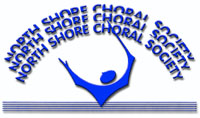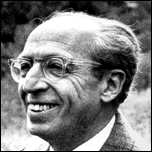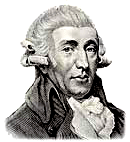 |
NSCS 1999-2000 Concert Season |
Click here for ticket information.
Sunday - December 12, 1999 - 2:00 pm Pick-Staiger Concert Hall Sarah Lawrence, soprano Nothing will get you and your friends more
into the spirit of the holiday season than listening to a live performance of
this most contagiously happy masterpiece. Come hear us. Let us brighten your
holidays.
Messiah
1977 South Campus Drive, Evanston, IL
Emily Lodine, mezzo-soprano
Kurt Hansen, tenor
Peter Van De Graaff, bass
Arthur Honegger
King David
Sunday, March 12, 2000 at 4 PM
North Shore Center for the Performing Arts
9501 Skokie Boulevard, Skokie, IL
Rabbi Shlomo Schuster, narrator
Sunny Joy Langton, soprano
Theresa Brancaccio, mezzo soprano
Kurt Hansen, tenor
Skokie Valley Symphony Orchestra and NSCS join to present
this
masterwork. Based on a play by Ren/ Morax, this exciting
symphonic drama recounts the life of King David. It calls for a large
performing force: chorus, full orchestra, three soloists, and two narrators.
 Click
here for Program Notes
Click
here for Program Notes
Sunday, May 21, 2000 at 3 PM The Parish Church of Saint Luke We conclude our season with a celebration of the centennial of
Aaron Copland Old American Songs
Franz Josef Haydn Mass No. 14 in B-flat Major ("Harmoniemesse")
939 Hinman, Evanston, IL
Rick Ziebarth, baritone
Kimberly E. Jones, soprano
Shalyn Rosenthal, mezzo-soprano
Thomas Dymit, tenor
Myron Myers, bass
Aaron Copland's birth. His settings of these familiar American folk songs
have become some of his most favorite works. Hearing these with
the grandest of Haydn's Masses, you will leave the concert
"humming a tune or two" and smiling happily.

Franz Josef Haydn

Program Notes for the MAY 21, 2000 CONCERT
by Donald Draganski
Today's concert
continues the Society's six-year traversal of all the Masses by Joseph Haydn
(1732-1809). His last Mass in B-flat which we present today is commonly
referred to as the Harmoniemesse -- "Harmonie" in German meaning in this
case a wind-band, referring to the very elaborate role that the woodwinds play
in this particular work. Haydn composed it in 1801 when he was already well
advanced in years -- he had already composed his two major oratorios, The
Creation and The Seasons , which he assumed would be his
valedictory to fifty years of unremitting productivity and labor. However, he
still held the post of Chapel Master and was asked to compose this Mass to mark
the name-day of Princess Marie Hermenegild. It was first given at the
Bergkirche in Eisenstadt on September 8, 1802; a certain Prince Starhemberg who
was present entered the following in his diary:
"Splendid Mass, new and excellent music by the renowned Haydn and conducted by him ... Nothing more beautiful or better performed; after the Mass returned to the castle .... Afterwards, a huge and magnificent dinner ... with music during the meal. The Princess's health proposed by the Prince and echoed by fanfares and cannon, followed by several more toasts, including one to me and one to Haydn, who was dining with us, proposed by me. After dinner we dressed for the ball, which was truly superb, like a Court ball."
As H. C. Robbins Landon points out, the picture we now get is quite different
from what we would have witnessed a few years earlier. Haydn now sits at the
same table with the nobility, and a distinguished diplomat proposes a toast to
the composer. "Within the span of his career" (Landon continues) "Haydn had
seen a complete transformation of his position -- from a servant in livery
literally kissing the hem of the Prince's garment, to a distinguished artist
invited to dine with the Prince and Princess and their guests, and the object
of affection and adulation."
As we consider this sizeable output of sacred music, we might wonder what
Haydn's own personal religious feelings were. As a young man he went counter to
the urgings of his parents who had hoped he would enter the priesthood; later
the young Joseph had to endure the shabby treatment he received at the hands of
the St. Stephen's Cathedral Choir School director who dismissed him in his
sixteenth year when his voice broke, leaving him with no visible means of
support. Despite these setbacks that may well have alienated him from his
Church, Haydn nevertheless remained a devout Catholic throughout his life. It
was his practice to inscribe the beginning of each new manuscript with the
words "In nomine Domini" (In the name of the Lord) and end it with "Laus Deo"
(Praise be to God). He was punctilious in observing the customary rubrics and
ceremonies that were the mark of a good practicing Catholic of the time. He
also maintained close friendships with a number of monastary abbots who could
always count on receiving copies of Haydn's latest scores for their scriptoria.
However, he was sufficiently open-eyed about his faith that he once took his
wife to task for entertaining too many priests at the dinner table and
responding to their mendicancy far beyond what their modest means would allow.
To what extent Haydn's faith entered into his art is impossible to determine, but we do know the effect his music had on Goethe who wrote the following:
"For nearly fifty years, practicing and listening to Haydn's work has always given me a feeling of fulfilment. At every contact with it I have had an involuntary desire to do what seems to me to be good, and what ought to please God." (Kunst und Altertum, vol. V)
*****
Aaron Copland (1900-1990) has served as a father-figure among American
composers for the greater part of our just-completed 20th century. Leonard
Bernstein, on the occasion of Copland's 70th birthday, said: "Copland has often
been called the Dean of American Composers, whatever that means. I guess it's
supposed to mean that he's the oldest, but he isn't the oldest -- he's just the
best." Copland was born in Brooklyn and, after showing early musical aptitude,
joined that confraternity of Americans who flocked to France to study with
Nadia Boulanger at Fontainebleau. He returned to the U.S. in 1924 and
immediately stunned the musical community with his highly original Organ
Symphony which Walter Damrosch premiered with the New York
Philharmonic. Throughout his career Copland has made a practice of
incorporating jazz, popular and folk idioms into his music, particulary in the
scores he turned out during the period 1935-1950.
Copland has composed relatively little music for chorus: a few early motets
while still a student, a handful of a capella choruses, and several pieces for
high-school use. Fortunately for us, several of his Old American Songs (originally
written for solo voice and piano for the baritone William Warfield) have been
arranged for chorus by various hands, most notably by the late Irving Fine.
Copland drew from various sources in assembling his song set. "Long time ago"
was a popular minstrel song of the nineteenth century. "Little Horses" is a
children's lullaby from the south; "At the river" is a hymn tune by Robert
Lowry, originally published in 1865; "I bought me a cat" is also a children's
song which Copland heard from a friend who sang it as a boy in Oklahoma.
"Ching-a-ring-chaw" was another popular minstrel song; the tune is by Daniel
Emmett who also composed "Dixie."
Copyright © 2000 by Donald Draganski
© 1999-2003 - North Shore Choral Society
P.O. Box 103
Evanston IL 60204-0103